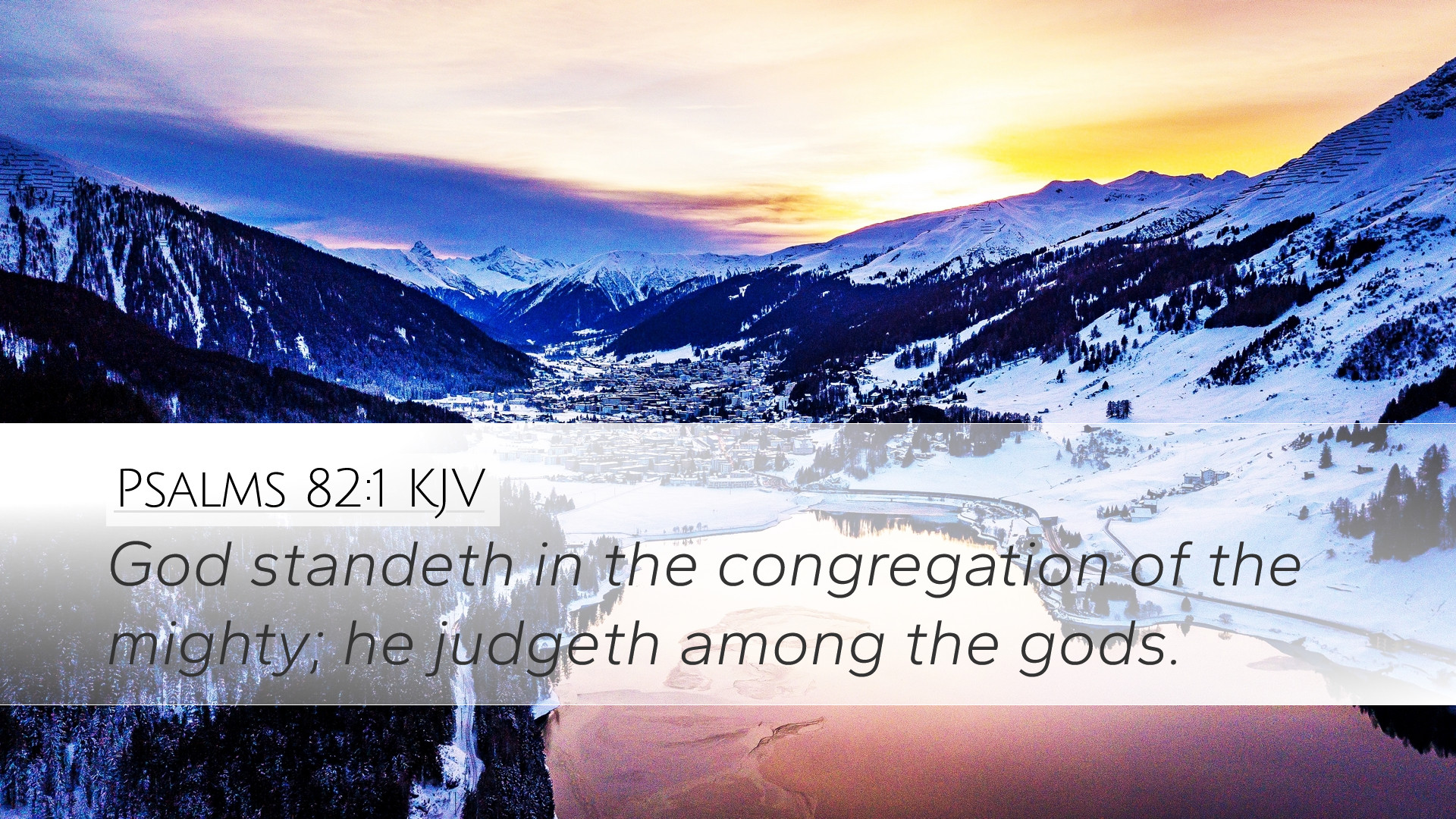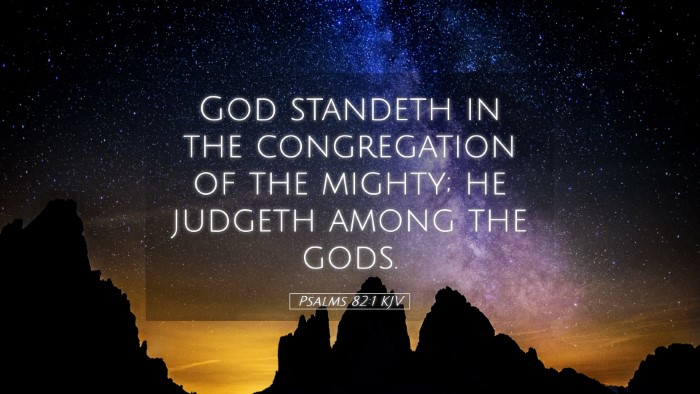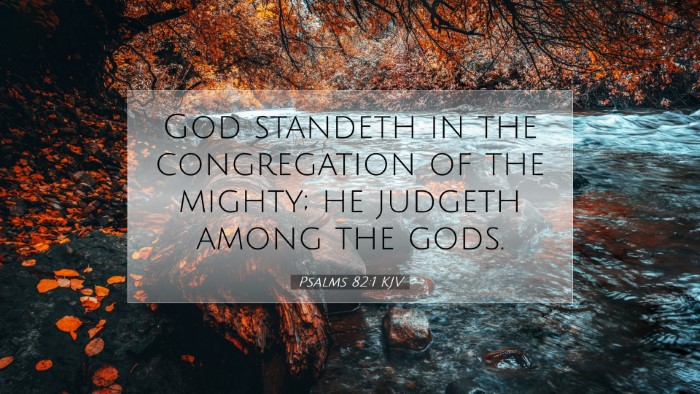Commentary on Psalms 82:1
Verse: "God standeth in the congregation of the mighty; he judgeth among the gods."
Introduction
This verse opens Psalm 82, a psalm addressing the theme of divine justice and the role of earthly rulers. The imagery presents God in a divine council, suggesting a scene where He presides over the judgment of powerful beings. This commentary extracts insights from renowned public domain commentaries by Matthew Henry, Albert Barnes, and Adam Clarke to explore the verse in depth.
Contextual Setting
Psalms 82 is often understood as a depiction of God’s authority over human rulers and unjust judges. Within the context of Israelite worship, this psalm serves as a stark reminder of the responsibilities that come with power.
The Divine Council
Henry notes that the "congregation of the mighty" can be interpreted as both a celestial assembly and a tribunal of earthly judges. God’s presence in the assembly signifies His overarching authority and ability to oversee justice. This relates to the ancient Near Eastern context, where deities were often envisioned as presiding over councils of lesser gods.
Cultural Significance
Barnes emphasizes the cultural backdrop against which this psalm is set. The Psalm asserts God's sovereignty over all authority, highlighting that earthly powers, often seen as gods in their own right due to their might, are ultimately subject to God’s justice.
The Role of God as Judge
God’s Judgment: The verse implies that God actively engages in the affairs of men, rendering judgment among those who are seen as powerful or divine.
Judging Among the Gods
According to Clarke, the term "gods" here refers to judges and rulers who have been endowed with authority yet often abuse their power. God’s challenge is directed at these figures who are meant to uphold justice but fail to do so.
Implications for Earthly Authority
Both Henry and Barnes agree that this scripture serves as a corrective measure for leaders. It reminds them of their accountability to divine standards of justice and righteousness. This encourages leaders to act in the fear of God, knowing their authority is not absolute.
Theological Insights
This verse provides profound theological insights into the nature of divine authority as juxtaposed against human authority. It raises significant questions regarding justice, morality, and the responsibilities of those in power.
God's Sovereignty
Reflecting on God's sovereignty, Henry remarks that the psalm showcases the Lord as the ultimate judge who oversees all affairs. This sovereignty offers comfort to the oppressed, affirming that God sees injustice and will address it.
Divine Justice vs. Human Judgement
Barnes makes an interesting point that while human judges may render decisions based on personal biases or societal pressures, God's judgment is pure, just, and unaffected by external influences. This distinction emphasizes the need for integrity among judges and leaders.
Practical Applications
This psalm encourages reflection among pastors, students, theologians, and Bible scholars on the significance of justice in leadership.
- For Pastors: This verse serves as a reminder to speak out against injustice and promote accountability among congregational leaders.
- For Students: Understanding the dynamics of power and responsibility can influence future leaders to uphold God's standards in their respective fields.
- For Theologians: Engaging with the implications of divine justice leads to a richer understanding of God’s character and His involvement in human affairs.
- For Bible Scholars: This verse opens avenues for discussing the intersection of divine authority and human governance in biblical theology.
Conclusion
Psalms 82:1 serves as both a proclamation of God’s sovereignty and a call to accountability for those in power. Its rich context and theological implications resonate profoundly within the framework of biblical justice. By understanding this verse, one can appreciate the essential nature of leadership aligned with divine will, reminding us that all authority should reflect God's righteousness.


